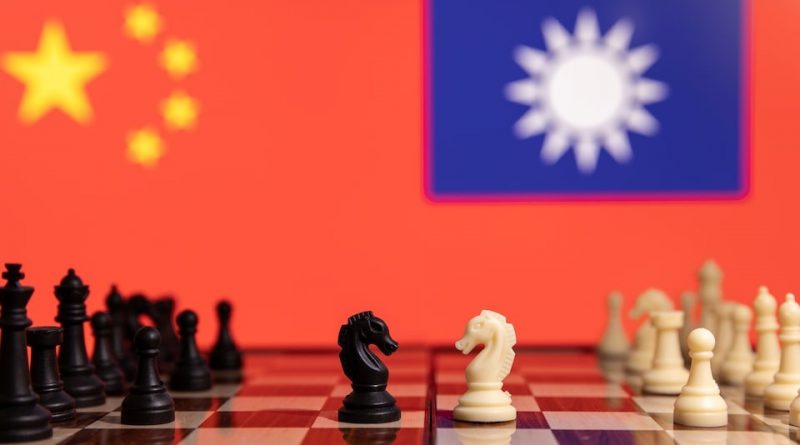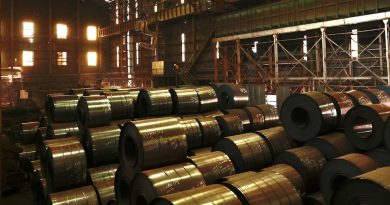Taiwan Reaffirms Freedom and Democracy Amid Growing Pressure
Hukou – Taiwan’s President Lai Ching-te delivered a powerful and uplifting message of resilience and unity on Friday, emphasizing the island’s unwavering commitment to freedom, democracy, and self-determination.
Speaking at a military base in northern Taiwan’s Hukou, President Lai affirmed that the people of Taiwan will continue to safeguard their sovereignty and way of life, while promoting peace through strength and national solidarity.
In recent days, China has renewed its call for Taiwan to accept its “one country, two systems” model, a framework applied to Hong Kong and Macau.
However, President Lai firmly rejected this proposal, reiterating that Taiwan’s democracy, independence, and constitutional integrity are non-negotiable.
He underscored that peace cannot come from submission but from the confidence and unity of a free people who value self-governance.
“Accepting the aggressor’s claims and abandoning sovereignty certainly cannot achieve peace,” Lai declared. “We must maintain the status quo with dignity and resolve, firmly opposing annexation, aggression, and forced unification.
We reject ‘one country, two systems’ because we will forever uphold our free and democratic constitutional system.”
President Lai’s speech carried a message of empowerment, focusing not on confrontation but on perseverance, dignity, and the shared responsibility of Taiwan’s citizens to protect their homeland.
His words reflected the nation’s belief that genuine peace comes through strength, preparedness, and international cooperation.
He emphasized that Taiwan’s sovereignty belongs to its people alone and cannot be dictated by external forces. “The Republic of China and the People’s Republic of China are not subordinate to each other,” Lai said. “Taiwan’s future can only be decided by the Taiwanese people themselves.”
Across Taiwan’s political spectrum, there is broad consensus in rejecting China’s “one country, two systems” proposal. Citizens and leaders alike have voiced their commitment to protecting democratic values, human rights, and the island’s open society.
The president’s remarks served as a rallying call for unity and resilience at a time when Taiwan faces growing regional challenges.
To reinforce national security and strengthen deterrence, Lai reaffirmed his government’s plan to increase military spending to 5% of GDP by 2030.
This long-term investment reflects Taiwan’s determination to maintain stability while building a defense system capable of protecting its democratic institutions.
“Investing in national defense is investing in peace,” Lai stated, emphasizing that deterrence through readiness ensures safety for future generations.
During the ceremony, Taiwan proudly commissioned its first battalion of M1A2T Abrams tanks at the Hukou military base.
The advanced tanks, produced by U.S. defense manufacturer General Dynamics Land Systems, symbolize the island’s ongoing modernization efforts and its strong partnership with the United States — Taiwan’s most important international supporter and defense partner.
So far, Taiwan has received 80 of the 108 tanks ordered, marking a significant milestone in strengthening its ground forces.
The presence of these tanks not only enhances Taiwan’s military capabilities but also sends a message of confidence and preparedness. They represent the nation’s ability to defend its territory, deter aggression, and ensure peace in the region.
President Lai praised the armed forces for their dedication and professionalism, thanking them for their tireless service in protecting the nation’s security and democratic ideals.
Meanwhile, international discussions surrounding Taiwan’s security continue to evolve. The United States has reiterated its commitment to Taiwan’s defense under existing laws, ensuring that the island has the means to protect itself from external threats.
U.S. Defense Secretary Pete Hegseth recently emphasized Washington’s concerns about China’s military activities around Taiwan and the South China Sea, calling for restraint and dialogue to prevent escalation.
Despite external pressures, President Lai’s leadership reflects optimism and strength. His vision focuses on unity, democracy, and the unwavering belief that peace and prosperity can only thrive when freedom is preserved.
Taiwan’s journey serves as a powerful example of a small but determined democracy standing tall on the global stage — not through confrontation, but through courage, cooperation, and an enduring commitment to its values.



